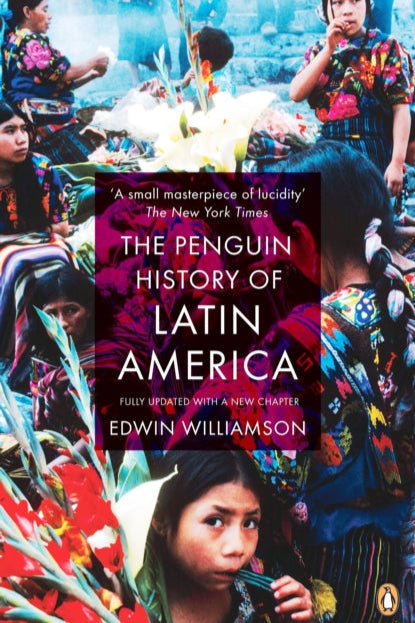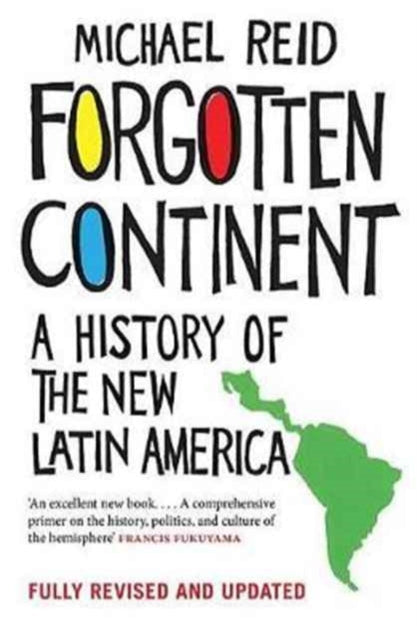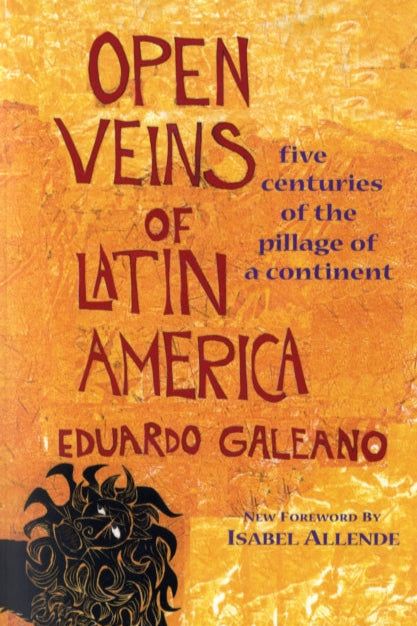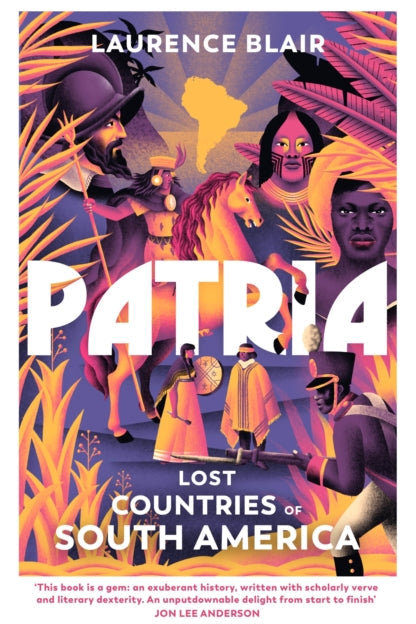The Story of Latin America
This wide-reaching collection helps readers understand Latin America’s past and present. The Penguin History of Latin America, Open Veins of Latin America and Forgotten Continent provide historical depth. America, América and Patria highlight changing identities and lost nations. Ideal for those seeking context for the region’s diversity and its enduring challenges.

The Penguin History of Latin America - Edwin Williamson
Now fully updated to 2009, this acclaimed history of Latin America tells its turbulent story from Columbus to Chavez. Beginning with the Spanish and Portuguese conquests of the New World, it takes in centuries of upheaval, revolution and modernisation up to the present day, looking in detail at Argentina, Mexico, Brazil, Chile and Cuba, and gives an overview of the cultural developments that have made Latin America a source of fascination for the world.

America, América - Greg Grandin
The story of the United States’ unique sense of itself was forged facing south – no less than Latin America’s was indelibly stamped by the looming colossus to the north. In this stunningly original reinterpretation of the New World, Professor Greg Grandin reveals how the Americas emerged from constant, turbulent engagement with each other, shedding new light on well-known historical figures like Bartolomé de las Casas, Simón Bolívar and Woodrow Wilson, as well as lesser-known actors such as the Venezuelan Francisco de Miranda, who almost lost his head in the French Revolution and conspired with Alexander Hamilton to free America from Spain. Drawing on a vast array of sources, and told with authority and flair, this is a genuinely new history of the New World.

Forgotten Continent - Michael Reid
Latin America has often been condemned to failure. Neither poor enough to evoke Africa’s moral crusade, nor as explosively booming as India and China, it has largely been overlooked by the West. Yet this vast continent, home to half a billion people, the world’s largest reserves of arable land, and 8.5 percent of global oil, is busily transforming its political and economic landscape. This book argues that rather than failing the test, Latin America’s efforts to build fairer and more prosperous societies make it one of the world’s most vigorous laboratories for capitalist democracy.

Open Veins of Latin America - Eduardo Galeano
Rather than chronology, geography, or political successions, Eduardo Galeano has organised the various facets of Latin American history according to the patterns of five centuries of exploitation. Thus he is concerned with gold and silver, cacao and cotton, rubber and coffee, fruit, hides and wool, petroleum, iron, nickel, manganese, copper, aluminum ore, nitrates, and tin. These are the veins which he traces through the body of the entire continent, up to the Rio Grande and throughout the Caribbean, and all the way to their open ends where they empty into the coffers of wealth in the United States and Europe.

Patria - Laurence Blair
Patria tells an alternative history of South America, spanning thousands of miles and five centuries to the present. Looking beyond modern borders, Laurence Blair takes as his waymarks nine countries that can’t be found on a map: vanished realms, half-imagined utopias and dismembered homelands. Groundbreaking recent scholarship, striking archaeological discoveries and vivid eyewitness reporting – including encounters with drug lords, Indigenous leaders, refugees and former guerrillas – weave a story of survival, resistance and revolution, restoring South America to the centre of world history.
